Their Britain, and ours
Brexit was a far more positive thing than the 2012 Olympic ceremony.
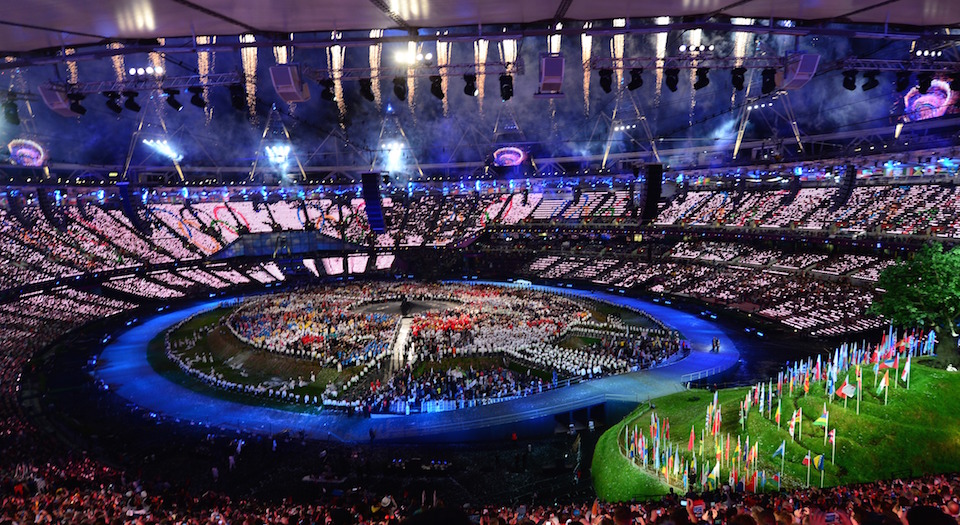
Want unlimited, ad-free access? Become a spiked supporter.
The fourth anniversary of Danny Boyle’s Olympic opening ceremony, coming just weeks after the British people voted for Brexit, sent the chattering classes into a spiral of mawkish self-pity and pained handwringing over what has become of ‘our’ (they mean ‘their’) Britain. Where that ceremony, all pop music and internet and worship of the NHS, showed Britain as ‘jolly and warm’, Brexit has apparently plunged the nation into ‘a cold and hostile age’, where we’re now ‘retreating from the world’ rather than being ‘open’ and ‘good-natured’, as one Brexit-bashing observer put it. Boyle’s bonanza showed the world that Britain ‘is a place of individuality, of social cohesion, of tolerance’, says another member of the angst-ridden set, but that was all ‘pre-Brexit’.
In a nutshell: what a difference four years make. Back then, in 2012, on the eve of the London Games, we were a plucky, buzzing nation, dancing about and welcoming the world to our shores. Today, we’re fearful, downbeat, and hate crime is surging (allegedly). The people ruined everything. The pesky masses, with their Europhobic views, their Little Englander instincts, shat all over the Britain revealed to us by Boyle and widely cheered by the media set four years back. It now seems like ‘a thousand years have passed’ since that glorious ceremony, says one observer. Frank Cottrell Boyce, who authored Boyle’s bonanza, says it feels like the Olympics-era ‘progressive, inclusive, innovative, funny nation’ has given way to a ‘divisive orgy of fear and loathing… a kind of anti-opening ceremony’.
Nothing better captures the political and cultural sets’ aloofness, their vast removal from reality, their cluelessness, in fact, than their hankering after a showy, short-lived opening ceremony, a four-hour phantasm, in preference to the Britain of real people, of concrete things, of actual opinion, of political difference, of mud and earth and strife. The irony is profound: the Remainer elites casually accuse the Brexiteer blob of wanting to escape globalised reality in a fictional Little England fed into their heads by demagogues like Nigel Farage, yet it is they who dream of returning to a Blighty that never existed, which was a mere TV spectacle, a dream implanted in their minds by Danny Boyle. Indeed, they openly confess that their imaginary Britain is the work of a kind of cultural demagoguery — the opening ceremony was the last time the ‘left [stirred] the passions as effectively as any demagogue of the right’, says Jonathan Freedland in the Guardian — and yet they want to live in it, to hide in it. The sins they see in Brexiteers — our nostalgia, our susceptibility to demagogues, our retreat from the world — are infinitely more pronounced in their camp than in ours.
It’s worth reminding these people of a basic fact: the opening ceremony was not Britain; it was a view of Britain as held by a section of the cultural establishment. The way they talk about the opening ceremony today, post-Brexit, post having their political worldview called into question by the masses, you’d be forgiven for thinking it had been a democratically designed, scientifically accurate snapshot of a nation and its people. Alan Yentob’s BBC doc on the opening ceremony, which aired two weeks ago, to coincide with the fourth-year anniversary, and also as a post-Brexit therapeutic balm for a liberal elite freaked out by the existence of people who hold different points of view to theirs, captured this view that Boyle’s show embodied Britain, that it was Britain. But in fact, as a writer for the Telegraph put it, Yentob’s TV show, and the ceremony itself, was really a ‘monument… to a type of the British self-image, and a type of the BBC-ish worldview, that have taken a kicking of late’.
Indeed. And if one thinks back on the ceremony, then it becomes clear what ‘type’ of elite worldview it was. This was a view of Britain that is post-industrial, devoted to creativity — a cultural economy rather than a ‘stuff’ economy — and which has no overarching value system other than diversity (all values are as cool as each other) and, of course, sanctification of the NHS. Who can forget the hordes of nurses and medical students bowing and jiving before the NHS as if it were a 21st-century sun god? This was not real Britain. This was the Britain enjoyed by the new elites, a Britain which conformed to their political prejudices and their narrow economic experience: to their prejudice of relativism, which makes a virtue of diversity over holding to, far less celebrating, concrete values, and to their experience of a creative economy, a knowledge economy, where producing ideas and images has overtaken producing things. This says precisely nothing to huge swathes of Britain, who think some values are better than others, and who are engaged in industry, or at least used to be, not in creativity.
The ceremony’s narrow appreciation of how Britain works was highlighted in its self-conscious juxtaposition of the Industrial Revolution — which it both celebrated and depicted as a nature-despoiling episode that turned Brits into grey slaves to machinery — with the new revolutions of creativity and the internet. It showed old England as a rural idyll, a pastoral dream, that was overturned by the mad, erect chimneys of industry, as kids sang Blake’s ‘Jerusalem’ (England’s ‘green and pleasant land’ screwed over by ‘dark Satanic mills’). Then came the redemption: Britain’s shift into making pop and art and knowledge. No more factory chimneys — yay!
As Cottrell Boyce says in his paean to the ceremony / weeping over Brexit: ‘[We] put culture at the heart of our national narrative. The story that began with the Industrial Revolution moved on to pop music and to children’s literature, as if to say, that’s what we did then, this is what we do now.’ Who does this now? Cottrell Boyce’s contacts and friends, perhaps, but not the millions, the masses, who still do industry, who make or transport or sell things. Where were they in this supposedly ‘inclusive’ view of Britain? They were the grey-ragged extras from the bad industrial past at the start of the ceremony, who were swept aside by the youthful dancers who came on to celebrate pop and websites and the knowledge economy. So much for inclusion. To many viewers, this will have been like a metaphor for what had happened to them in real life in recent decades: they’d been excluded, shunned from the national narrative, reduced at best to curiosities from an older, spent Britain, and at worst to problematic people whose work is seen as polluting and whose passions are distrusted.
Which leads to the second main theme of the ceremony: its self-conscious disavowal of traditional values in favour of celebrating the hollowness of the ideology of multiculturalism. Multiculturalism fundamentally says: all cultures are great and Britain is a mishmash of them all. Again, this is a narrow cultural establishment view. It speaks, not to any genuine tolerance or democratic openness among the new elites, but to their discomfort with British history and British traditions, from the Industrial Revolution through to the idea of Britain being a sovereign state, and to their relativistic reluctance to elevate any value system over any other. Except their own, of course. Their own post-values value system, their preference for avoiding the difficult, critical task of questioning value systems and thinking about which ones are best, is sacrosanct. This is why the Conservative MP, Aidan Burley, who denounced the ceremony as ‘leftie multicultural claptrap’, was so intensely harangued, and branded by Labour MP Tristram Hunt as being ‘incompatible with modern Britain’ — because the greatest sin in the cult of relativism is to question the cult of relativism, to suggest it’s wrong to say all cultural outlooks are equally valuable. So much for the ceremony representing ‘tolerance’.
Again, how do the ceremony-worshippers think the others, the inhabitants of a more industrialised Britain, the holders of particular values, felt upon watching the ceremony’s open discomfort with Britain’s past and traditions? They probably felt excluded. The ceremony was inclusive only for those who shared its creators’ views and prejudices and experiences.
In this sense, it is right to talk about that ceremony and Brexit in the same breath, but not for the reasons the chattering-class mourners think. Not because the ceremony captured a truer, better Britain, and Brexit ruined it all by reconstituting an older, darker Britain. No, because where the ceremony symbolised the new elitism that has taken hold in Britain in recent years — an elitism that values creativity over construction, multicultural nothingness over cultural confidence, and city-based creatives over the grafting hordes — Brexit was a powerful, positive reminder that the other people, the working people, the people with different views, the people who are a majority, still exist. The attempted exclusion of them, the reduction of them to extras in a story dreamt up by the political and media elite, did not work. They live and breathe and think, and with Brexit they acted. They reasserted themselves. ‘We’re here’, they said. That was an infinitely more powerful, more positive, and, of course, more democratic moment than the 2012 ceremony.
The ceremony spoke, ultimately, to the colonisation of the political and cultural narrative by the narrowest strata of society. Brexit spoke to the interruption of that narrative by the throng, by a very broad section of the public, including vast numbers of the poor and working class. And there was more reality and bravery and tolerance in their action than there was in that ceremony. They went against the grain, shook up the cosy consensus, reminded us that Britain is not a happy-clappy gathering of likeminded storytellers and NHS worshippers but rather is a place with tensions and differences and these things should be had out, not hidden beneath the gloss of a government-funded act of cultural demagoguery. Where the new elite wants to hide in a Little Britain of Danny Boyle’s imagining, the public far prefers to live in the real world of argument and politics and thinking about what the future might look like. They are the liberal ones, the democrats, the ones willing to face the world and confront its problems, and it’s the new elite that wants to run away into a mythical past, a cultural fantasy, a demagogue-like dream.
Yet even now, the ceremony worshippers seek to diss Brexit. Cottrell Boyce treats it as a primal scream. Where the ceremony held out ‘the possibility of inclusion and ease’, Brexit was a ‘scream of pain and fury that tells us how it feels to be excluded from that ease’, he says. And now, he continues, ‘we need to listen to both’. In short, what we need now is therapy, listening exercises. But the vote in the EU referendum was not a show, like the ceremony was. It was a democratic, binding statement. It doesn’t need to be listened to; it needs to be obeyed. The ceremony was a four-hour dream about a Britain that never really existed; Brexit is a real and brilliant throwing-open of a potential new era of debate and of clashing ideas. It is an attempted return to the Britain of mud and earth and strife that the new elites thought they had hidden away, or, even worse, thought had disappeared.
Brendan O’Neill is editor of spiked.
Picture by: Getty Images.
£1 a month for 3 months
You’ve hit your monthly free article limit.
Support spiked and get unlimited access.
Support spiked – £1 a month for 3 months
spiked is funded by readers like you. Only 0.1% of regular readers currently support us. If just 1% did, we could grow our team and step up the fight for free speech and democracy.
Become a spiked supporter and enjoy unlimited, ad-free access, bonus content and exclusive events – while helping to keep independent journalism alive.
———————————————————————————————————————————–
Exclusive January offer: join today for £1 a month for 3 months. Then £5 a month, cancel anytime.
———————————————————————————————————————————–
Monthly support makes the biggest difference. Thank you.

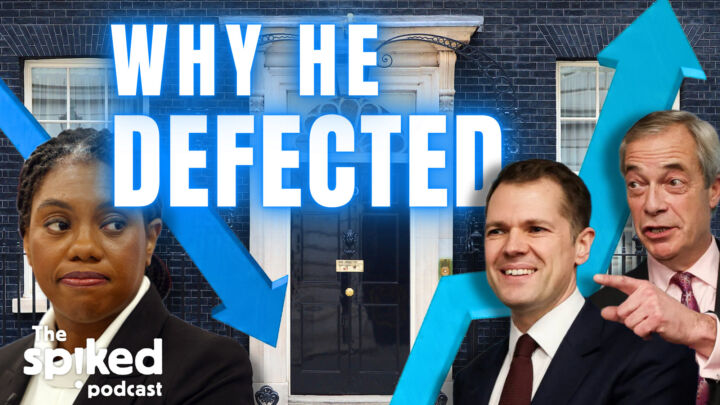
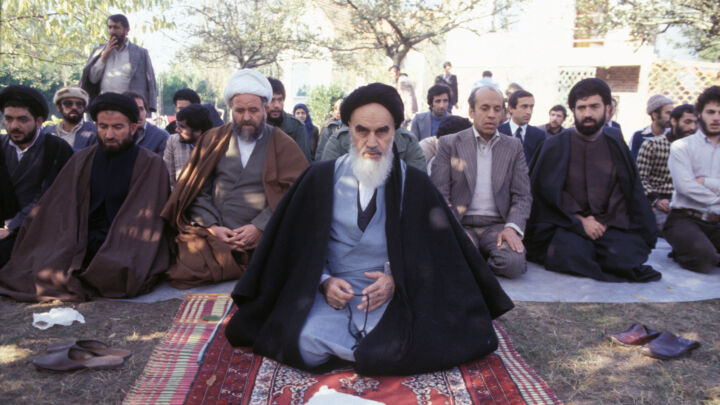
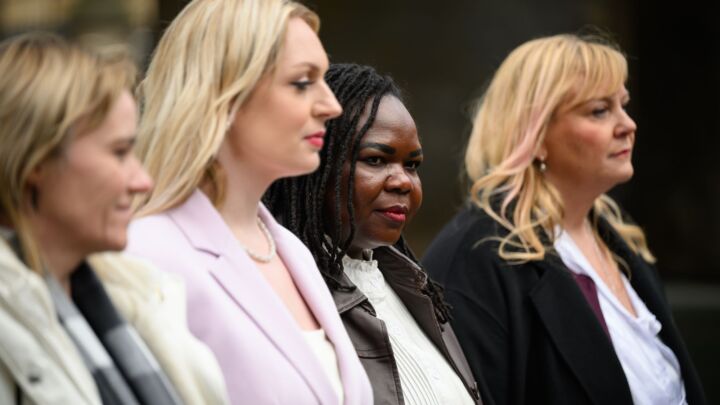
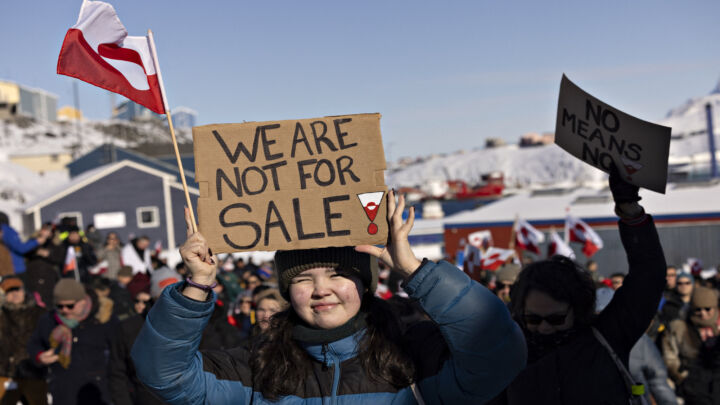
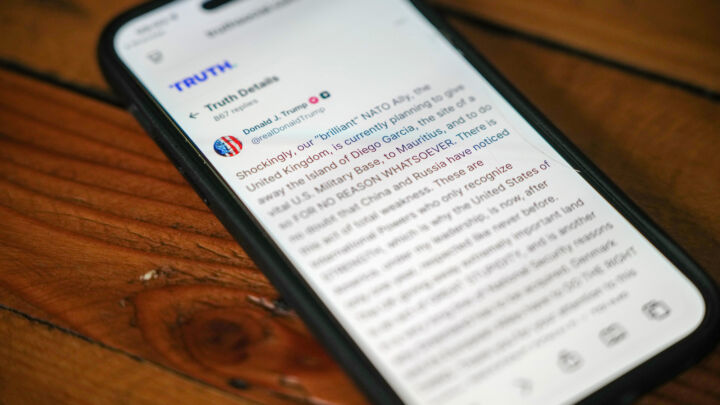
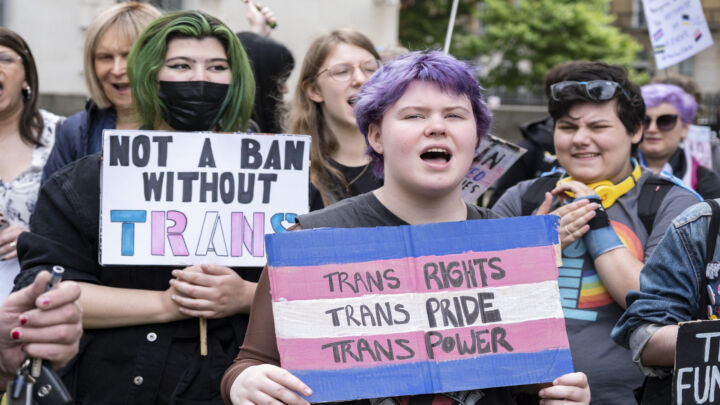


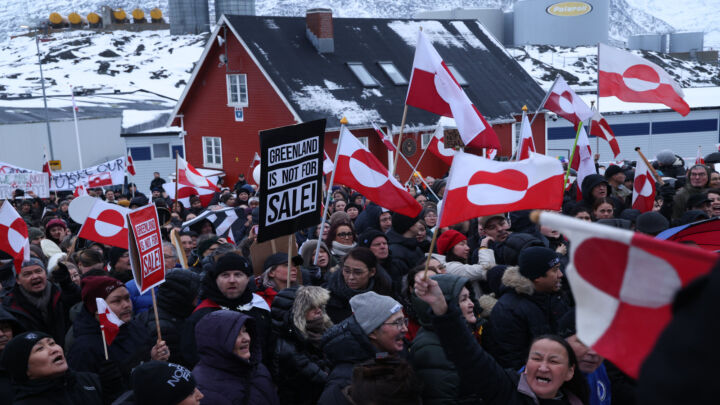

Comments
Want to join the conversation?
Only spiked supporters and patrons, who donate regularly to us, can comment on our articles.